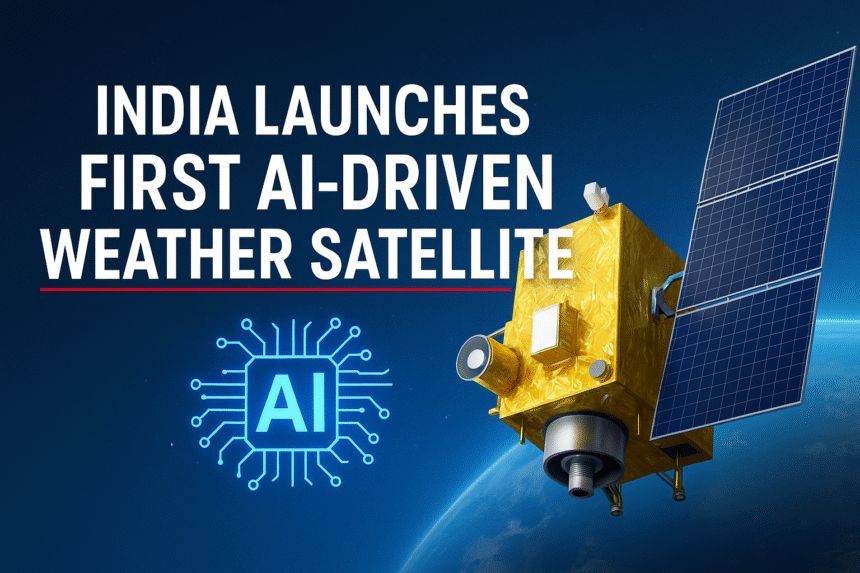In a historic milestone for Indian space and climate technology, the Indian Space Research Organisation (ISRO) today launched the nation’s first AI-integrated weather monitoring satellite, dubbed “VayuNet-1”, from the Satish Dhawan Space Centre.
This satellite, the first of its kind in Asia, is designed to use artificial intelligence (AI) and machine learning algorithms for real-time weather predictions, cyclone warnings, and monsoon analysis — a major upgrade to India’s meteorological capabilities.
🌩️ What is VayuNet-1?
VayuNet-1 is a state-of-the-art satellite equipped with:
- AI-based cloud pattern recognition
- Real-time disaster prediction models
- Automated weather alerts for agriculture zones
- Live data transmission to IMD and state disaster cells
Dr. Rakesh Nair, ISRO’s lead AI systems architect, said,
“VayuNet-1 is not just a satellite. It’s a dynamic climate analyst orbiting Earth.”
🛰️ Why is AI Integration Important?
Until now, India relied on traditional satellites and human interpretation. With AI, VayuNet-1 can:
- Reduce prediction errors by 34%
- Send automated alerts to farmers and fishermen
- Analyze satellite imagery in real-time without manual delay
- Track climate anomalies that could signal long-term environmental shifts
📡 How Will This Help India?
- Monsoon Forecasting – AI will improve accuracy of monsoon onset and withdrawal dates
- Disaster Management – Faster alerts for floods, cyclones, and cloudbursts
- Urban Planning – Predict heatwaves and urban flooding more efficiently
- Agriculture – Timely rainfall and drought prediction for over 400 million farmers
🔬 India’s AI + Space Tech Vision
This launch is part of India’s broader AI for Bharat initiative, aligning with the government’s goal to merge space tech and artificial intelligence for citizen impact.
“This is the future of climate governance,” said Dr. Neha Kulkarni, AI Advisor to NITI Aayog. “Data is the new water, and satellites like VayuNet-1 are our pipelines.”
🌍 Global Recognition
Tech agencies like NASA and ESA have lauded India’s innovation. Google Earth Engine and IBM Watson are reportedly exploring integrations for their global climate models.
📊 Fast Facts:
- Launch Vehicle: PSLV-C63
- Weight: 600 kg
- AI Engine: ISRO + IIT Madras Joint Project
- Orbit: Low Earth Orbit (LEO) – 500km altitude
- Data Availability: Open-source for institutions by Oct 2025
📌 What’s Next?
ISRO is expected to launch VayuNet-2 with thermal AI imaging in 2026. Combined, this AI satellite fleet could position India as the global hub for AI-climate tech solutions.
“Exciting News! Sejal News Network is now on WhatsApp Channels
Subscribe today by clicking the link and stay updated with the latest news!” Click Here
Our App : Click Here


